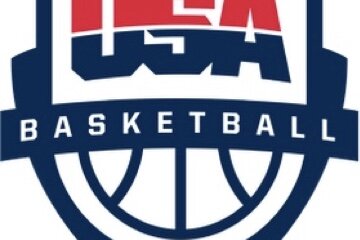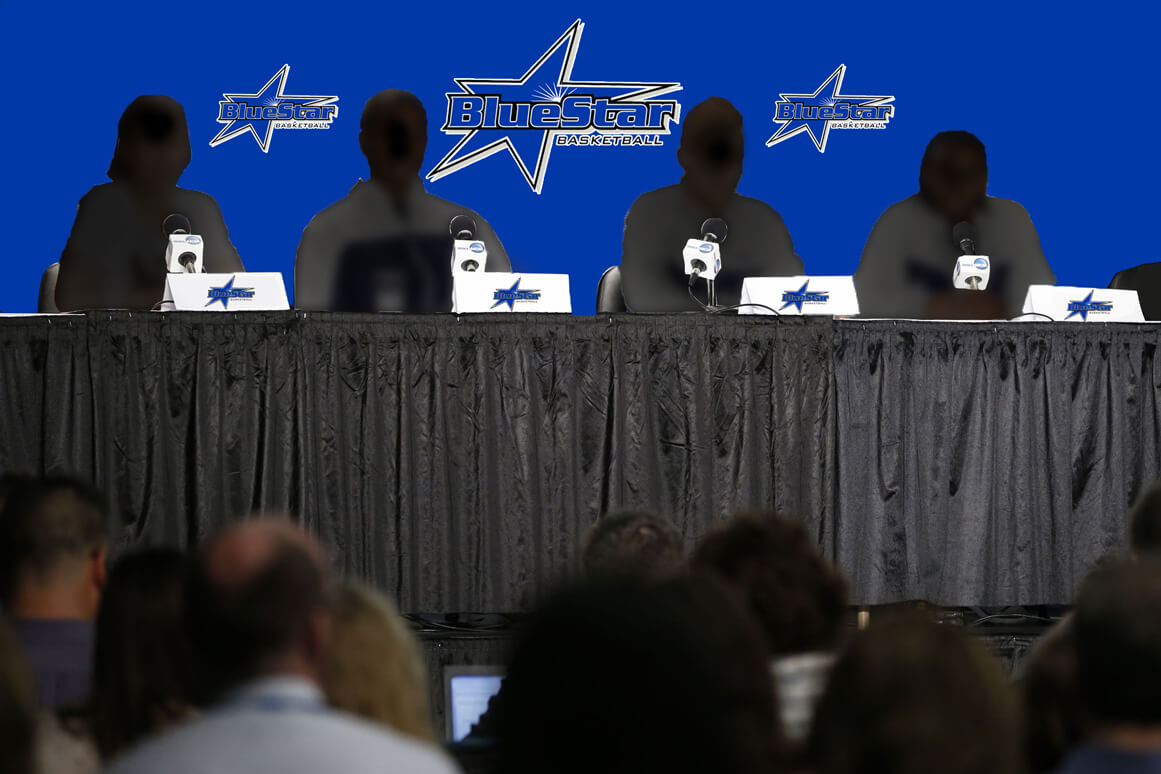To understand the impact that Betty Jaynes had on the sport of women’s basketball, there was a brief halftime segment devoted to her memory during Monday’s Duke-North Carolina game on ESPN2.
That a behind-the-scenes figure such as Betty Jaynes prompted the on-air remembrance of studio analyst and former Tennessee star Kara Lawson illustrates how much the first executive director and CEO of the Women’s Basketball Association meant to so many in her sport.
Jaynes, who died on Monday at the age of 68, was a critical contributor to the professionalization of women’s coaches.
To just about everyone who knew her, or only got acquainted with her, Betty was an unmistakable personality, and resolutely determined to help her sport grow.
Outgoing, friendly, passionate, full of energy and clearly enjoying a life devoted to women’s basketball and the people in it, Jaynes was easy to like and even easier to admire.
I can’t do justice to the many tributes that poured in Monday night as the news about her death spread throughout the women’s basketball community and on social media channels (many of them rounded up on the WBCA’s Twitter account and its website).

Here’s Jim Haney, Jaynes’ longtime counterpart with the National Association of Basketball Coaches:
“I will remember her for the soft tones of her voice and yet the determination of her efforts to see women’s basketball grow and prosper. As one looks back over the history of NCAA basketball, Betty should be remembered as a pillar upon which the game continues to grow and thrive.”
I first got to know Betty in the early 1990s doing some freelance writing for the WBCA, which is located not far from me in suburban Atlanta. Betty moved the organization near her Georgia hometown of Covington from its original location in Wayne, Pa., and being close to home was important for her.
Like many people, I was instantly struck by Betty’s warmth, good humor and hearty laugh. After I had moved on to newspaper work, I occasionally saw her at UGA Lady Bulldogs games in Athens with her sister Peggy, a devoted Bulldogs football fan, and we’d chat about that as much as women’s hoops.
“Jump Shot Betty” had a way of making you feel like family, as we say in the South, and that’s something this sometimes grizzled media type will always remember.
Betty was the head coach at James Madison as the AIAW era dawned in the early 1970s. Her school was the host of the 1975 AIAW finals, when Delta State began its run of three consecutive championships.
It was a time when the small schools ruled, and before there were sports regulations for Title IX. But as the decade came to a close, the women’s game was about to undergo significant change.
In early 1981, the NCAA voted to sponsor women’s sports, and it was a contentious decision that caused anxiety for some in AIAW ranks. Others were eager for the better financial resources of the NCAA.
Late that summer, at the U.S. Olympic Festival, several leading coaches, including Jill Hutchison, Theresa Grentz, Pat Summitt, Vivian Stringer, Colleen Matsuhara and Kay Yow, met to discuss how to organize their fellow coaches and create an umbrella organization for the growth of the sport.
In the fall, Jaynes stepped down at James Madison to lead the WBCA, whose inaugural convention at the first NCAA Final Four had around 100 attendees. The WBCA has since grown to more than 4,000 members.
For insiders in the sport this information is well-known; but I can’t help but think as I write this how many people really don’t know much about the rich, but brief history of the women’s college game.
It’s been barely 40 years, and we’ve lost another important piece of living history. There will be another time to examine where the WBCA stands, given the timing and urgency of the recommendations of the Ackerman report.
It’s a topic that’s sure to come up at the WBCA convention at the Final Four in Nashville, the first without Betty since that first convention in Virginia Beach in 1982.
After she turned the reins over the Beth Bass in 2001 and staying on a consultant, Betty helped create the WBCA internship program that bears her name, mentoring aspiring young coaches and administrators.
Bridging the gap between her pioneering generation and those now coming up in the sport, and wishing for a career and a good life from it, was the final, lasting legacy Betty will leave, and it is a commendable one.
In an earlier update on Monday, the WBCA said Jaynes recently had been hospitalized for complications from major surgery that ultimately resulted in permanent liver damage.
Betty’s family has asked that in lieu of flowers, contributions be made to the Betty F. Jaynes Internship Program at the WBCA offices, 4646 Lawrenceville Highway, Lilburn, Ga., 30047.
* * * * * * * *
A month before Betty Jaynes died, the women’s basketball community lost another valuable contributor who also didn’t generate headlines but instead worked to get the media to create them.
Mary Jo Haverbeck, who died on Jan. 6 at the age of 74, was an assistant sports information director at Penn State and a media volunteer at the Women’s Final Four for many years. She also was the first woman to be inducted into the College Sports Information Directors of America Hall of Fame.
 After her retirement in the late 1990s, Mary Jo taught journalism at Penn State, and diligently worked to provide media resource material for coverage of women’s basketball with a website, Women’s Basketball Cup of Coffee (now sadly offline).
After her retirement in the late 1990s, Mary Jo taught journalism at Penn State, and diligently worked to provide media resource material for coverage of women’s basketball with a website, Women’s Basketball Cup of Coffee (now sadly offline).
While this project was a labor of love for Mary Jo, it also was a shrewd nod to the onset of digital media, another way in which she was a step ahead of most of us.
Like Betty Jaynes, her love for the sport of women’s basketball was undeniable, and her enthusiasm to help tell the stories of female college athletes was infectious.
Mary Jo was such a believer in the value of sports for women, and she wanted the public to appreciate that. She wasn’t shrill about it, but her gentle smile and professional demeanor just won people over, and her persistence paid off.
At Penn State’s first game after her death, the ESPN crew calling the game offered a remembrance, and current Penn State women’s SID Kris Petersen tweeted a photo of Mary Jo’s place card on press row at the Bryce Jordan Center.
That’s when the loss of someone of such enormous impact and generous spirit really hits home.
She was a shining example of so many of the quality people in this sport whose contributions don’t get the recognition that they deserve.
Mel Greenberg rounded up some tributes to Mary Jo on his blog.
Contributions in her memory can be sent to the St. Andrew’s Episcopal Church Memorial Fund, 208 W. Foster Ave., State College, Pa., 16801.
Wendy Parker is a sportswriter and web editor who has covered women's basketball since the early 1990s. She is a correspondent for Basketball Times and formerly covered women's and college sports, soccer and the Olympics at The Atlanta Journal-Constitution. She is the author of "Beyond Title IX: The Cultural Laments of Women's Sports," available on Amazon, and the creator of Sports Biblio, a blog about sports books and history.

Latest Articles
-


Christopher Lawlor
/ 2 days agoTwenty-Six Athletes Expected to Participate in USA Basketball Women’s U18 National Team Trials that begin on May 15
COLORADO SPRINGS, Colo. — USA Basketball announced 26 athletes expected to participate in the...
-


Basketball
/ 5 days agoAAU 3on3 Highlights WBHoF 25th Anniversary Weekend
KNOXVILLE – The 25th anniversary weekend celebration of the Women’s Basketball Hall of Fame...
By Mike Flynn -


Christopher Lawlor
/ 1 week agoGONE PRO: Blue Star Media Elite 25 football rankings’ regulars Bishop Gorman (NV) and IMG Academy (FL) lead 2024 NFL Draft with three selections apiece
BENSALEM, Pa. – One of the greatest three day stretches annually in professional sports...
-


Basketball
/ 1 week agoREVISIONS: National Federation of State High School Associations announce rule changes for upcoming season; flopping will incur a technical foul
BENSALEM, Pa. – Floppers, beware, you will be warned once before being issued a...



